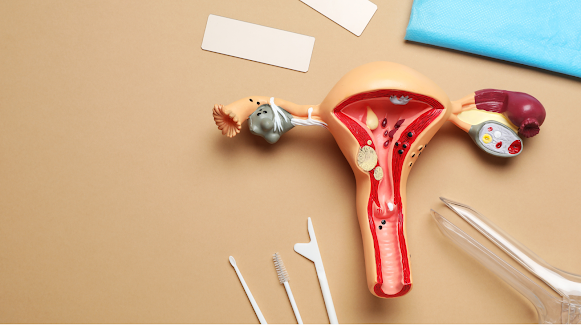Role of Endometrium Lining for IVF Success
In recent years, advances in reproductive medicine have offered hope to countless couples struggling with infertility. In vitro fertilization (IVF) has become a widely utilized technique, enabling many couples to achieve their dreams of parenthood. However, IVF success is not solely dependent on the quality of the embryos or the skill of the medical team; the endometrium lining plays a crucial role in determining the outcome of the procedure. In this article, we will delve into the significance of the endometrial lining for IVF success.
Understanding the
Endometrium:
The endometrium is the innermost lining of the uterus. Its
primary function is to prepare for and support the implantation of a fertilized
embryo. The endometrial lining undergoes dynamic changes throughout a woman's
menstrual cycle, responding to hormonal fluctuations to create an ideal
environment for embryo implantation.
(i) Embryo Implantation: For a successful pregnancy to occur, the embryo must implant securely into the endometrial lining. A thick and receptive endometrium provides the embryo with a hospitable environment, increasing the chances of implantation.
(ii) Nutrient Supply: The endometrial lining serves as a source of nutrients and support for the developing embryo. A well-nourished and healthy endometrium ensures that the embryo receives the necessary nutrients for growth.
(iii)
Hormonal Synchronization: Hormonal
synchronization between the embryo and the endometrial lining is crucial. The
endometrium must be appropriately primed to accept the embryo when it reaches
the uterus. Any disruption in this synchronization can lead to implantation
failure.
Factors Affecting Endometrial Receptivity:
Several factors can influence the receptivity of the endometrial lining, including:
1. 1. Hormonal Balance: Proper hormonal balance, particularly estrogen and progesterone, is essential for endometrial thickening and receptivity. Hormone replacement therapy may be employed to optimize these levels.
2. 2. Uterine Pathologies: Conditions such as fibroids, polyps, or adenomyosis can affect the quality of the endometrial lining. Surgical intervention may be necessary to address these issues.
3. 3. Inflammation:
Chronic inflammation in the uterus can disrupt the endometrial environment.
Treating underlying inflammatory conditions can improve receptivity.
How to enhance Endometrial
Receptivity for IVF Success:
1. Hormonal Therapy: Hormone therapies, including controlled ovarian stimulation, are commonly used to manipulate the menstrual cycle and optimize endometrial receptivity.
2. Endometrial Scratching: In some cases, endometrial scratching, a minimally invasive procedure, may be performed to stimulate the endometrium and improve its receptivity.
3. Lifestyle Factors: Maintaining a healthy lifestyle through proper nutrition, regular exercise, and stress management can positively impact endometrial health.
4. Patient-Specific
Protocols: IVF clinics increasingly use personalized treatment protocols,
tailored to the individual's unique needs and challenges, to enhance
endometrial receptivity.

